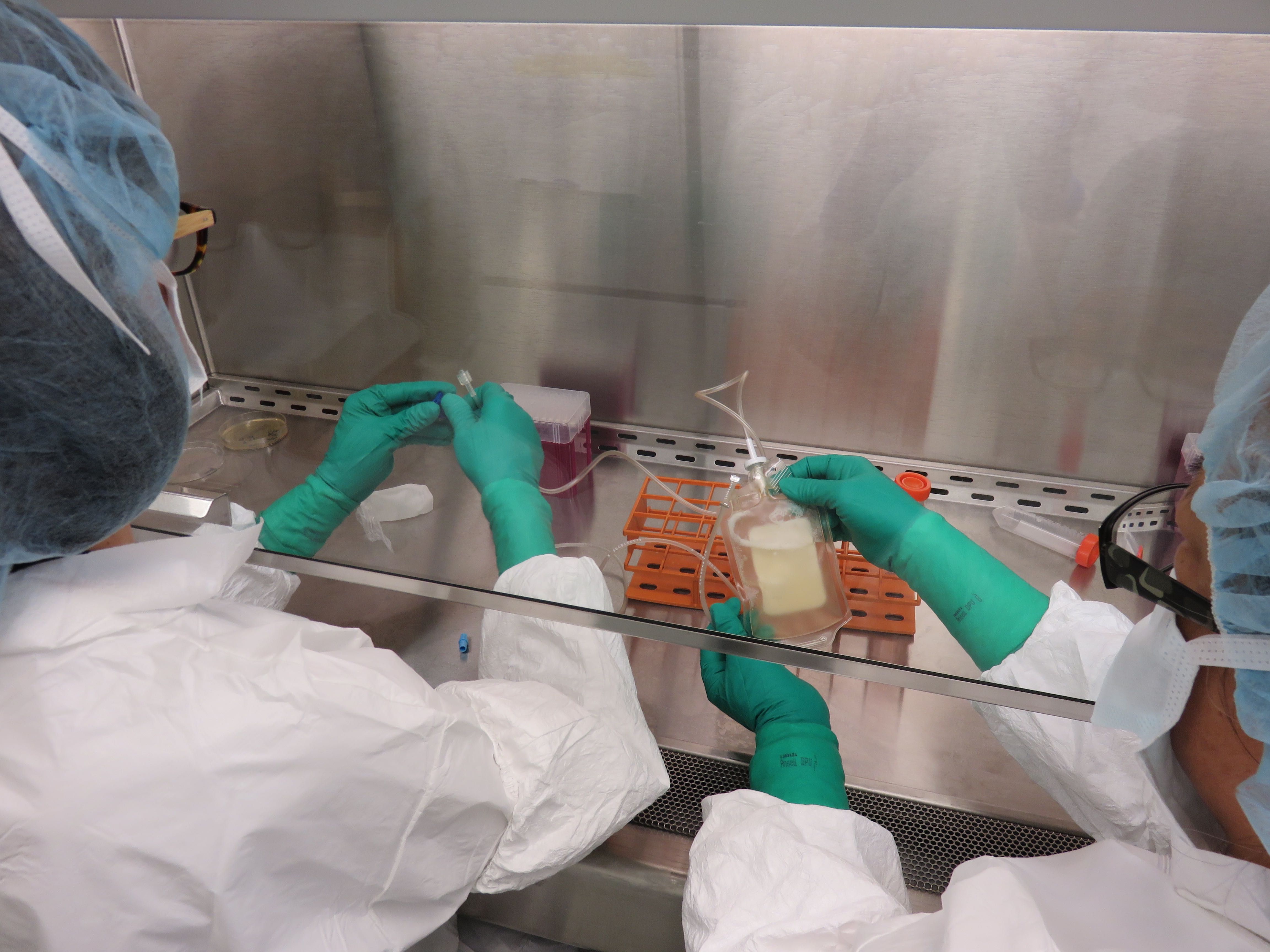- Acne
- Actinic Keratosis
- Aesthetics
- Alopecia
- Atopic Dermatitis
- Buy-and-Bill
- COVID-19
- Case-Based Roundtable
- Chronic Hand Eczema
- Chronic Spontaneous Urticaria
- Drug Watch
- Eczema
- General Dermatology
- Hidradenitis Suppurativa
- Melasma
- NP and PA
- Pediatric Dermatology
- Pigmentary Disorders
- Practice Management
- Precision Medicine and Biologics
- Prurigo Nodularis
- Psoriasis
- Psoriatic Arthritis
- Rare Disease
- Rosacea
- Skin Cancer
- Vitiligo
- Wound Care
Article
Personalized Melanoma Vaccines Debut in Humans
Identifying specific neo-antigens in melanoma, a cancer known for having high numbers of genetic mutations caused by exposure to ultraviolet light, is no easy task. learn more.
Identifying specific neo-antigens in melanoma, a cancer known for having high numbers of genetic mutations caused by exposure to ultraviolet light, is no easy task. A melanoma biopsy typically carries 500 or more mutated genes.
To date, vaccines have targeted non-mutated shared proteins expressed in normal and cancer cells. This has made it difficult to stimulate a robust immune response because the immune system does not see these proteins as foreign, said senior author Gerald Linette, M.D., Ph.D., a Washington University medical oncologist.
READ: Targeting your melanoma therapy
Researchers recently published results on the first human study1 looking at personalized vaccines designed to activate T-cells aimed at individual cancer patient’s mutations. The study, including three advanced melanoma patients, suggests these tailor-made vaccines boost T-cell number and diversity, resulting in a tumor response.
The vaccines in this study are engineered based on which of the tumor-specific proteins altered due to DNA mutations are most likely to elicit a strong individual immune responses, according to co-author Elaine Mardis, Ph.D., co-director of the McDonnell Genome Institute at Washington University.
“In particular, our vaccine approach seeks to remind the patient's immune system that these mutated proteins are truly non-self…,” Mardis said.
NEXT: Methodology


Methodology
Researchers sequenced the genomes of the patients’ tumors. They used mass spectrometry to identify neo-antigens on the tumors’ surfaces that were encoded by specific mutant genes. The researchers selected a set of seven unique neo-antigens to engineer each vaccine, and used patient-derived dendritic cells to deliver the neo-antigens to the immune system.
Each patient received three vaccine doses during about 18 weeks. After they were vaccinated, patients’ blood was drawn every week for about four months.
The researchers used prediction algorithms to help identify neo-antigens that not only were expressed in a patient's tumor but also were likely to be seen by that patient's immune system as non-self.
NEXT: Findings
Findings
Blood analyses revealed that each patient’s immune system responded to specific neo-antigens in the vaccines. The vaccines stimulated diverse clones of T-cells against neo-antigens, suggesting this approach also could be used to activate T-cells in other cancers with high mutation rates, such as lung cancer, bladder cancer and certain colorectal cancers, according to a press release by Washington University School of Medicine.
READ: Glutamine Addiction” Fuels Melanoma
Each of the three patients in the Phase 1 clinical trial was at high risk for melanoma recurrence and had a history of surgical melanoma removal. All three patients developed a relapse before the trial began and were treated with checkpoint inhibitors. One patient had a complete remission, while the other two had disease progression. After receiving the individualized vaccines, the one patient who began the study in remission remains in remission, with no evidence of cancer. Regarding the other two patients, one patient had a transient two-month regression of lung metastasis while the other patient had stable disease, according to Dr. Linette’s comments at a news conference with the study’s researchers.
READ: Immunotherapy promising for advanced melanoma
“We found that each patient’s immune system recognized three of the seven neo-antigens that were formulated in the vaccine,” said lead author Beatriz Carreno, Ph.D., associate professor of medicine at Washington University School of Medicine.
NEXT: Presence of neo-antigens
Research collaborators at the University of Oklahoma Health Science Center confirmed the presence of these neo-antigens as flags on the surface of each patient's melanoma cells. They observed that all three patients had pre-existing immunity to at least one neo-antigen, and vaccination revealed new immunity to two additional neo-antigens, according to Dr. Carreno.
“We think that immunity to multiple tumor antigens is an important component of any therapeutic strategy since the diverse response might exert pressure to reduce tumors from escaping immune system control,” Dr. Carreno said.
READ: UV-induced mutations factor in pediatric melanoma
An unexpected finding from immunologic studies is that vaccination promotes a highly diverse repertoire of neo-antigen specific T-cells, suggesting that cancer patients might have in reserve a pool of naïve tumor specific T cells that remain dormant unless activated by vaccination.
The study, Dr. Carreno said, highlights a new approach that merges cancer genomics with immune cell therapy to develop personalized dendritic cell vaccine that activates T cells against neo-antigens.
“We think our findings represent a significant step towards more personalized immunotherapy,” she said.
Future applications for these personalized melanoma vaccines might be for patients postsurgery, to stimulate the immune system to attack remaining cancer cells and prevent recurrence. This proof-of-principle study sets the stage for an FDA-approved phase I vaccine trial that will enroll six melanoma patients.
More on melanoma
New medical therapies result in symptoms of various skin conditions
Innovative programs for skin cancer prevention
GEP test scores high in predicting probability of cancer spreading
NEXT: References
References:
1. Carreno BM, Magrini V, Becker-hapak M, et al. A dendritic cell vaccine increases the breadth and diversity of melanoma neoantigen-specific T cells. Science. 2015;
Newsletter
Like what you’re reading? Subscribe to Dermatology Times for weekly updates on therapies, innovations, and real-world practice tips.















